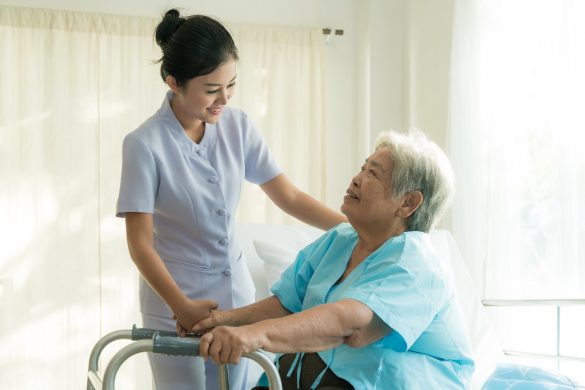 PCAs: who are they? PCAs are known as personal care aides. As well as providing companionship, PCAs assist patients and clients with daily tasks and self-care. An important aspect of in-home care is the support that personal care aides provide to clients and their families on a physical and emotional level.
PCAs: who are they? PCAs are known as personal care aides. As well as providing companionship, PCAs assist patients and clients with daily tasks and self-care. An important aspect of in-home care is the support that personal care aides provide to clients and their families on a physical and emotional level.
A majority of personal care aides work in patients’ homes, while others work in larger care communities or in small group homes. Most PCAs work in agencies that provide in-home services or care, but some PCAs are employed directly by clients or their families.
There are not typically any requirements related to education for a PCA, though they may need some licenses and certifications based on their employer or state. Aide may need to learn emergency and safety techniques or how to cook for certain dietary restrictions, for example.
The training of aides may be provided by nurses, other PCAs, or their employers directly. The healthcare assistants are trained in specific tasks, such as how to assist a client with a cognitive impairment and how to prepare meals for someone with certain dietary restrictions.
In certain states, formal training programs, such as those offered by community colleges, vocational schools, and elder care programs, are required. Prospective personal care aides may be subjected to background checks by some states and organizations. To ensure that the aide can perform the required tasks, a competency evaluation or check may be required.
Most employers require first aid and cardiopulmonary resuscitation (CPR) training for personal care aides.
Job Requirements of a PCA:
- Detail Is Important. You have to maintain a consistent routine or schedule for everyone you serve, regardless of their differences. This may mean administering medications every few hours, or following dietary or physical rules.
- When assisting with personal activities such as bathing or dressing, personal care aides should make clients feel comfortable. To be trusted by clients and their families, aides must also be trustworthy and reliable.
- You need people skills. PCA requires excellent interpersonal skills, as stated above. A PCA must understand that every client has a unique set of needs. Even when said clients are difficult, confused, depressed, or weak, the aide must be able to maintain a positive relationship with them. PCAs need to be compassionate, patient, sensitive, and empathic.
- Strong physical health. PCAs have a demanding job and must have a high level of physical strength to succeed. A nurse will often have to move patients, assist them in and out of wheelchairs, help them into and out of the bathtub, pick up a client after a trip or fall, etc. PCAs in good, stable condition are needed to accomplish this.
- A good time manager. It is essential that assistants keep track of their own schedules as well as their client(s)’. Ensure that clients wake up on time, make it to appointments, preparing meals on regular basis, and taking their daily medications.
Job Responsibilities and Duties:
- Care for and assist clients with cognitive impairments (ex: Alzheimer’s or mental illness)
- Provide companionship
- Personal hygiene, bathing, grooming, brushing, going to restroom
- Transfer clients from bed to wheelchair or vice versa
- Housekeeping tasks (ex: changing bed sheets, wash dishes, clean living areas)
- Prepare and plan meals
- Organize client’s schedule and administer appointments
- Arrange transportation to and from doctor’s visits
- Help clients pay bills or manage money
- Shop for groceries and other personal items
All Home Health Care: Why should you choose us? In the process of searching for dependable and trustworthy personal care aides, clients and families might seem uncertain and hesitant. Families may be concerned about individuals who have acted as aides only to be involved with identity theft and theft of their personal belongings. This has always been an issue. We only hire within the highest standards under All Home Health Care, and we conduct extensive background checks to ensure quality care for each patient.
